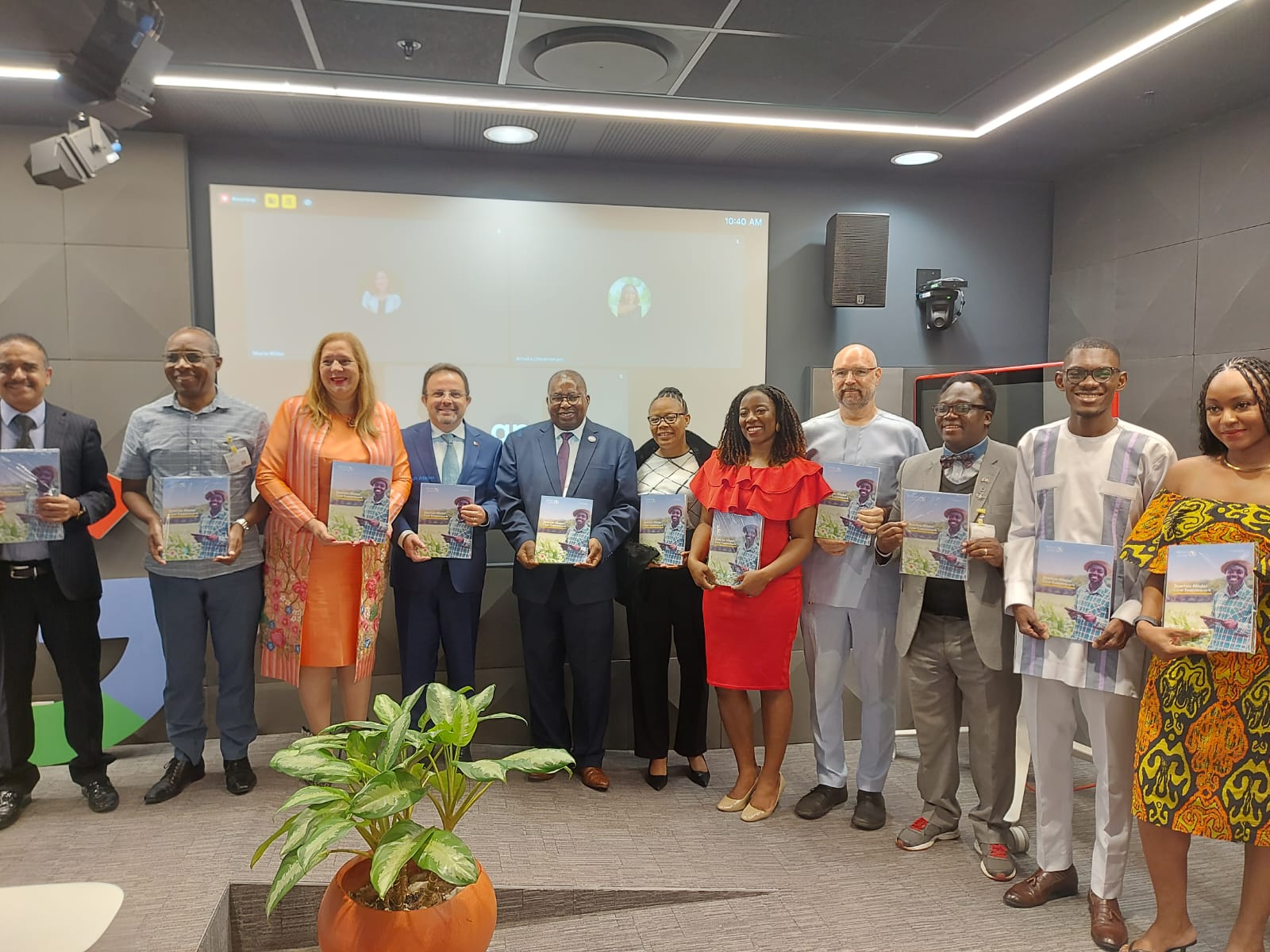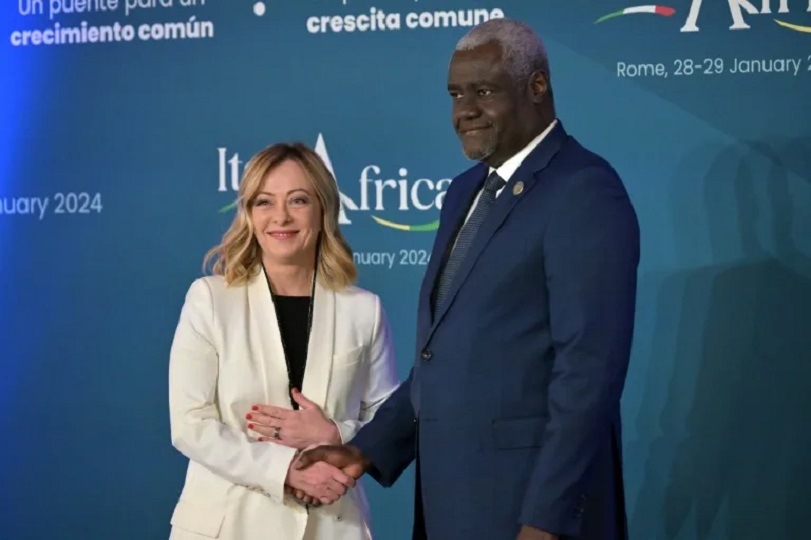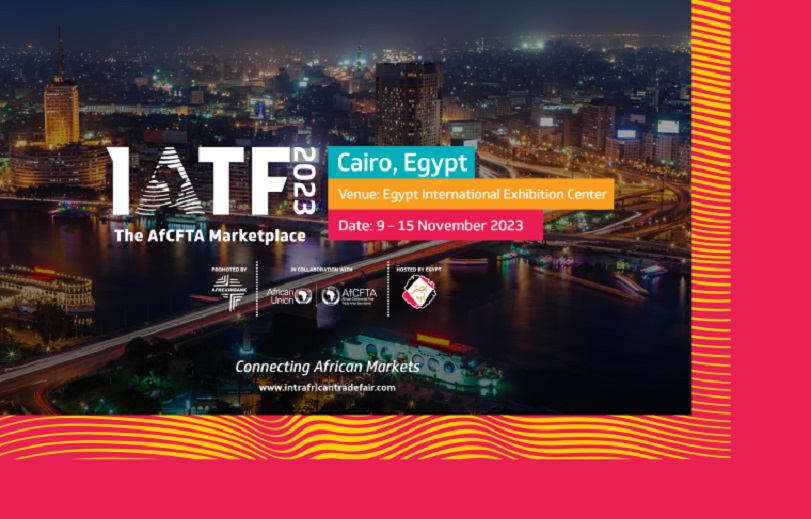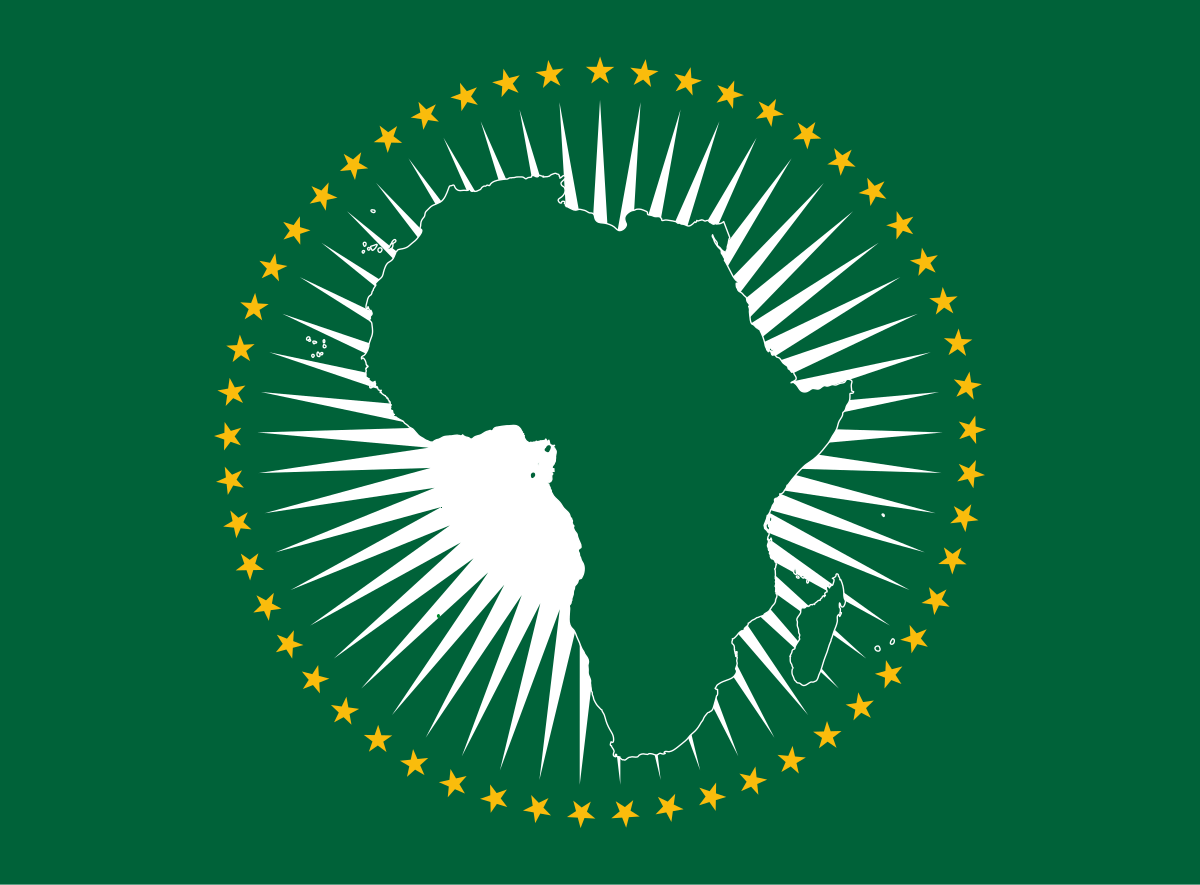World
AU Partners Google to Formulate Policy Framework for Startups

By Aduragbemi Omiyale
The African Union (AU) has collaborated with Google and Africa Practice to design a policy framework for member states to address challenges hindering startups on the continent.
The new initiative, known as the AU Startup Policy Framework and Model Law, will provide specific sample clauses to guide nations in developing or updating their national startup legislative and regulatory governance arrangements.
“We are excited about the new prospects for our continent unlocked by the adoption of the Startup Policy Framework and Model Law which is set to leapfrog the startup ecosystem in Africa,” the African Union Commissioner for Economic Development, Trade, Tourism, Industry and Minerals, Mr Albert Muchanga, said at the launch of the framework.
This scheme was unveiled at the AU 6th Mid-Year Coordination Meeting in Accra, Ghana. The event brings together the AU, the Regional Economic Communities, the Regional Mechanisms and the AU member states.
“As you know, small and medium-sized enterprises, including startups, represent most businesses in all sectors and are the primary source of job creation.
“Specifically, startups spur development by creating jobs in the digital economy, employing 34,000 people across the continent. Unfortunately, out of 1000 unicorns globally, only seven are in Africa.
“This is primarily due to complex regulations, limited funding, a scarcity of skilled labour, and fragmented markets in Africa.
“Therefore, the framework is expected to unlock some of these hurdles and set a strong foundation for the growth of Africa’s startup landscape, projected to expand to $10 billion by 2056,” Mr Muchanga further said.
“Africa is a young continent, by 2050, the continent will account for 25% of the global population. Governments need to make provisions to enable capital flow for the burgeoning ideas coming out of Africa.
“We need to create an environment that enables these innovative minds to catapult the continent to economic prosperity, and this framework is what enables this,” he added.
Also speaking, the Regional Director for Sub-Saharan Africa, Government Affairs and Public Policy at Google, Mr Charles Murito, noted, “Africa receives a disproportionately small share of global venture funding.
“In 2023, the continent raised a total of $4.5 billion from 545 disclosed venture capital deals, reflecting a 30 per cent decrease in value and a 31% decline in the number of deals compared to 2022.
“Notably, 16 per cent of the funding recipients were female-led ventures, only marginally up from 11 per cent in 2020.
“Funding flows also skew towards the same sectors, exacerbating the financing challenge; with fintech continuing to lead deal volumes.
“The same destinations also receive disproportionately more of the financing flows into the continent: startups in Nigeria, Kenya, South Africa, and Egypt received 62 per cent of the total deal volume.”
World
Ukraine Reveals Identities of Nigerians Killed Fighting for Russia

By Adedapo Adesanya
The Ukrainian Defence Intelligence (UDI) has identified two Nigerian men, Mr Hamzat Kazeem Kolawole and Mr Mbah Stephen Udoka, allegedly killed while fighting as Russian mercenaries in the war between the two countries ongoing since February 2022.
The development comes after Russia denied knowledge of Nigerians being recruited to fight on the frontlines.
Earlier this week, the Russian Ambassador to Nigeria, Mr Andrey Podyolyshev, said in Abuja that he was not aware of any government-backed programme to recruit Nigerians to fight in the war in Ukraine.
He said if at all such activity existed, it is not connected with the Russian state.
However, in a statement on Thursday, the Ukrainian Defence released photographs of Nigerians killed while defending Russia.
“In the Luhansk region, military intelligence operatives discovered the bodies of two citizens of the Federal Republic of Nigeria — Hamzat Kazeen Kolawole (03.04.1983) and Mbah Stephen Udoka (07.01.1988),” the statement read.
According to the statement, both men served in the 423rd Guards Motor Rifle Regiment (military unit 91701) of the 4th Guards Kantemirovskaya Tank Division of the armed forces of the Russian Federation.
UDI said that they signed contracts with the Russian Army in the second half of 2025 – the deceased Mr Kolawole on August 29 and Mr Udoka on September 28.
“Udoka received no training whatsoever — just five days later, on October 3, he was assigned to the unit and sent to the temporarily occupied territories of Ukraine,” the report read.
It added that no training records for Mr Kolawole have been preserved; however, it is highly likely that he also received no military training, but his wife and three children remain in Nigeria.
Both Nigerians, the report added, were killed in late November during an attempt to storm Ukrainian positions in the Luhansk region.
“They never engaged in a firefight — the mercenaries were eliminated by a drone strike,” UDI stated, warning foreign citizens against travelling to the Russian Federation or taking up any work on the territory of the “aggressor state”.
“A trip to Russia is a real risk of being forced into a suicide assault unit and, ultimately, rotting in Ukrainian soil,” the statement read.
In an investigation earlier this month, CNN reported that hundreds of African men have been enticed to fight for Russia in Ukraine with the promise of civilian jobs and high salaries. However, the media organisation uncovered that they are being deceived or sent to the front lines with little combat training.
CNN said it reviewed hundreds of chats on messaging apps, military contracts, visas, flights and hotel bookings, as well as gathering first-hand accounts from African fighters in Ukraine, to understand just how Russia entices African men to bolster its ranks.
World
Today’s Generation of Entrepreneurs Value Flexibility, Autonomy—McNeal-Weary

By Kestér Kenn Klomegâh
The Young African Leaders Initiative (YALI) is the United States’ signature step to invest in the next generation of African leaders. Since its establishment in 2010 by Obama administration, YALI has offered diverse opportunities, including academic training in leadership, governance skills, organizational development and entrepreneurship, and has connected with thousands of young leaders across Africa. This United States’ policy collaboration benefits both America and Africa by creating stronger partnerships, enhancing mutual prosperity, and ensuring a more stable environment.
In our conversation, Tonya McNeal-Weary, Managing Director at IBS Global Consulting, Inc., Global Headquarters in Detroit, Michigan, has endeavored to discuss, thoroughly, today’s generation of entrepreneurs and also building partnerships as a foundation for driving positive change and innovation in the global marketplace. Here are the excerpts of her conversation:
How would you describe today’s generation of entrepreneurs?
I would describe today’s generation of entrepreneurs as having a digital-first mindset and a fundamental belief that business success and social impact can coexist. Unlike the entrepreneurs before them, they’ve grown up with the internet as a given, enabling them to build global businesses from their laptops and think beyond geographic constraints from day one. They value flexibility and autonomy, often rejecting traditional corporate ladders in favor of building something meaningful on their own terms, even if it means embracing uncertainty and financial risk that previous generations might have avoided.
And those representing the Young African Leaders Initiative, who attended your webinar presentation late January 2026?
The entrepreneurs representing the Young African Leaders Initiative are redefining entrepreneurship on the continent by leveraging their unique perspectives, cultural heritage, and experiences. Their ability to innovate within local contexts while connecting to global opportunities exemplifies how the new wave of entrepreneurs is not confined by geography or conventional expectations.
What were the main issues that formed your ‘lecture’ with them, Young African Leaders Initiative?
The main issues that formed my lecture for the Young African Leaders Initiative were driven by understanding the importance of building successful partnerships when expanding into the United States or any foreign market. During my lecture, I emphasized that forming strategic alliances can help entrepreneurs navigate unfamiliar business environments, access new resources, and foster long-term growth. By understanding how to establish strong and effective partnerships, emerging leaders can position their businesses for sustainable success in global markets. I also discussed the critical factors that contribute to successful partnerships, such as establishing clear communication channels, aligning on shared goals, and cultivating trust between all parties involved. Entrepreneurs must be proactive in seeking out partners who complement their strengths and fill gaps in expertise or resources. It is equally important to conduct thorough due diligence to ensure that potential collaborators share similar values and ethical standards. Ultimately, the seminar aimed to empower YALI entrepreneurs with practical insights and actionable strategies for forging meaningful connections across borders. Building successful partnerships is not only a pathway to business growth but also a foundation for driving positive change and innovation in the global marketplace.
What makes a ‘leader’ today, particularly, in the context of the emerging global business architecture?
In my opinion, a leader in today’s emerging global business architecture must navigate complexity and ambiguity with a fundamentally different skill set than what was previously required. Where traditional leadership emphasized command-and-control and singular vision, contemporary leaders succeed through adaptive thinking and collaborative influence across decentralized networks. Furthermore, emotional intelligence has evolved from a soft skill to a strategic imperative. Today, the effective modern leader must possess deep cross-cultural intelligence, understanding that global business is no longer about exporting one model worldwide but about genuinely integrating diverse perspectives and adapting to local contexts while maintaining coherent values.
Does multinational culture play in its (leadership) formation?
I believe multinational culture plays a profound and arguably essential role in forming the kind of leadership required in today’s global business environment. Leaders who have lived, worked, or deeply engaged across multiple cultural contexts develop a cognitive flexibility that’s difficult to replicate through reading or training alone. More importantly, multinational exposure tends to dismantle the unconscious certainty that one’s own way of doing things is inherently “normal” or “best.” Leaders shaped in multicultural environments often develop a productive discomfort with absolutes; they become more adept at asking questions, seeking input, and recognizing blind spots. This humility and curiosity become strategic assets when building global teams, entering new markets, or navigating geopolitical complexity. However, it’s worth noting that multinational experience alone doesn’t automatically create great leaders. What matters is the depth and quality of cross-cultural engagement, not just the passport stamps. The formation of global leadership is less about where someone has been and more about whether they’ve developed the capacity to see beyond their own cultural lens and genuinely value differences as a source of insight rather than merely tolerating them as an obstacle to overcome.
In the context of heightening geopolitical situation, and with Africa, what would you say, in terms of, people-to-people interaction?
People-to-people interaction is critically important in the African business context, particularly as geopolitical competition intensifies on the continent. In this crowded and often transactional landscape, the depth and authenticity of human relationships can determine whether a business venture succeeds or fails. I spoke on this during my presentation. When business leaders take the time for face-to-face meetings, invest in understanding local priorities rather than imposing external agendas, and build relationships beyond the immediate transaction, they signal a different kind of partnership. The heightened geopolitical situation actually makes this human dimension more vital, not less. As competition increases and narratives clash about whose model of development is best, the businesses and nations that succeed in Africa will likely be those that invest in relationships characterized by reciprocity, respect, and long-term commitment rather than those pursuing quick wins.
How important is it for creating public perception and approach to today’s business?
Interaction between individuals is crucial for shaping public perception, as it influences views in ways that formal communications cannot. We live in a society where word-of-mouth, community networks, and social trust areincredibly important. As a result, a business leader’s behavior in personal interactions, their respect for local customs, their willingness to listen, and their follow-through on commitments have a far-reaching impact that extends well beyond the immediate meeting. The geopolitical dimension amplifies this importance because African nations now have choices. They’re no longer dependent on any single partner and can compare approaches to business.
From the above discussions, how would you describe global business in relation to Africa? Is it directed at creating diverse import dependency?
While it would be too simplistic to say global business is uniformly directed at creating import dependency, the structural patterns that have emerged often produce exactly that outcome, whether by design or as a consequence of how global capital seeks returns. Global financial institutions and trade agreements have historically encouraged African nations to focus on their “comparative advantages” in primary commodities rather than industrial development. The critical question is whether global business can engage with Africa in ways that build productive capacity, transfer technology, develop local talent, and enable countries to manufacture for themselves and for export—or whether the economic incentives and power irregularities make this structurally unlikely without deliberate policy intervention.
World
Russia Expands Military-Technical Cooperation With African Partners

By Kestér Kenn Klomegâh
Despite geopolitical complexities, tensions and pressure, Russia’s military arms and weaponry sales earned approximately $15 billion at the closure of 2025, according to Kremlin report. At the regular session, chaired by Russian President Vladimir Putin on Jan. 30, the Commission on Military and Technical Cooperation with Foreign Countries analyzed the results of its work for 2025, and defined plans for the future.
It was noted that the system of military-technical cooperation continued to operate in difficult conditions, and with increased pressure from the Western countries to block business relations with Russia. The meeting, however, admitted that export contracts have generally performed sustainably. Russian military products were exported to more than 30 countries last year, and the amount of foreign exchange exceeded $15 billion.
Such results provide an additional opportunity to direct funds to the modernization of OPC enterprises, to the expansion of their production capacities, and to advanced research. It is also important that at these enterprises a significant volume of products is civilian products.
The Russian system of military-technical cooperation has not only demonstrated effectiveness and high resilience, but has created fundamental structures, which allow to significantly expand the “geography” of supplies of products of military purpose and, thus strengthen the position of Russia’s leader and employer advanced weapons systems – proven, tested in real combat conditions.
Thanks to the employees of the Federal Service for Military Technical Cooperation and Rosoboronexport, the staff of OPC enterprises for their good faith. Within the framework of the new federal project “Development of military-technical cooperation of Russia with foreign countries” for the period 2026-2028, additional measures of support are introduced. Further effective use of existing financial and other support mechanisms and instruments is extremely important because the volumes of military exports in accordance with the 2026 plan.
Special attention would be paid to the expansion of military-technological cooperation and partnerships, with 14 states already implementing or in development more than 340 such projects.
Future plans will allow to improve the characteristics of existing weapons and equipment and to develop new promising models, including those in demand on global markets, among other issues – the development of strategic areas of military-technical cooperation, and above all, with partners on the CIS and the CSTO. This is one of the priority tasks to strengthen both bilateral and multilateral relations, ensuring stability and security in Eurasia.
From January 2026, Russia chairs the CSTO, and this requires working systematically with partners, including comprehensive approaches to expanding military-technical relations. New prospects open up for deepening military-technical cooperation and with countries in other regions, including with states on the African continent. Russia has been historically strong and trusting relationships with African countries. In different years even the USSR, and then Russia supplied African countries with a significant amount of weapons and military equipment, trained specialists on their production, operation, repair, as well as military personnel.
Today, despite pressure from the West, African partners express readiness to expand relations with Russia in the military and military-technical fields. It is not only about increasing supplies of Russian military exports, but also about the purchase of other weapons, other materials and products. Russia has undertaken comprehensive maintenance of previously delivered equipment, organization of licensed production of Russian military products and some other important issues. In general, African countries are sufficient for consideration today.
-

 Feature/OPED6 years ago
Feature/OPED6 years agoDavos was Different this year
-
Travel/Tourism10 years ago
Lagos Seals Western Lodge Hotel In Ikorodu
-

 Showbiz3 years ago
Showbiz3 years agoEstranged Lover Releases Videos of Empress Njamah Bathing
-

 Banking8 years ago
Banking8 years agoSort Codes of GTBank Branches in Nigeria
-

 Economy3 years ago
Economy3 years agoSubsidy Removal: CNG at N130 Per Litre Cheaper Than Petrol—IPMAN
-

 Banking3 years ago
Banking3 years agoSort Codes of UBA Branches in Nigeria
-

 Banking3 years ago
Banking3 years agoFirst Bank Announces Planned Downtime
-

 Sports3 years ago
Sports3 years agoHighest Paid Nigerian Footballer – How Much Do Nigerian Footballers Earn




















